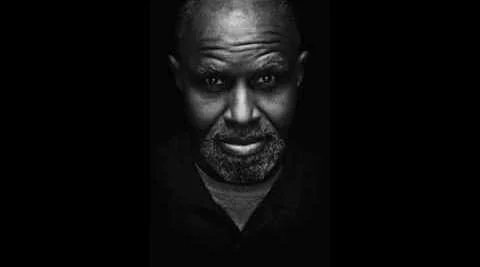A Critic's Critique of Critics: Armond White
When I started this new segment where I review film critics throughout history, no request came up more than the notorious Armond White. I want to use this opportunity to somewhat clear his name, but also do what is right (considering who I am writing about, after all). There’s a reason why this New York publication pundit has been asked about so much in such a short amount of time. He gets under the skin of many readers. It’s absolutely no secret that White is a contrarian at heart, and has knowingly bested the newer online means of criticism consumption for his own benefit. White was a significant writer for New York Press until it folded in 2011, and was a big name in the New York Film Critics Circle until he was kicked out during an event for 12 Years a Slave (an uncertain allegation that hasn’t slowed White down). As a writer for National Review and Out, White has been back in full force for years, much to the dismay of many cinephiles that are too hellbent on review aggregate websites.
I have to be honest. I want to give everyone a fair shake, and that includes Armond White himself. As a writer (strictly as a writer), he is better than I will ever be. His career started for a clear cut reason: the guy can convey his thoughts intelligently. When he is being seemingly sincere with his reviews, you can get a lot out of what he is saying. Plus, he often champions the films that don’t get enough love; I will forever be grateful for him singing Happy-Go-Lucky’s praises in a time when it wasn’t awards-season-appropriate to do so (and shame on all of the academies that neglected this film). I know a lot of you are expecting a beatdown, and I can’t condone that if there is at least something substantial within someone. I have to describe what I see at face value. That’s what makes me a critic.
Armond White.
However, it’s the lack of integral honesty that rises off of his reviews that is absolutely impossible to ignore; it’s strange for a void to be borderline tangible instead of simply just not being present. White is as known as he is for tearing apart beloved films and championing heads scratching flicks. I completely agree that a critic doesn’t have to love something just because it’s popular or expected of them, but we cannot go any further without pointing out some of these specific examples: Parasite, Get Out, There Will Be Blood, The Wrestler, 12 Years a Slave (need I go further?). That would be completely fine if that was entirely his opinion, but I’m of the understanding that it isn’t. In fact, my earliest recollection of White was his review for The Wrestler, which felt like he didn’t even see the film at all. Considering the incorrect statements in the review (including attributing the “Ram Jam” move as Mickey Rourke’s character’s nick name [which it isn’t] and the insinuation that Marissa Tomei’s character was explicitly the “girlfriend” character [hanging out a few times and dating aren’t the same thing; Randy never got that far]), it’s at least obvious that he didn’t pay attention or care to fully get everything right. To top it all off, he goes on to compare Rourke’s performance to that of Jason Statham in Death Race (which has held up as well as a cheese string outside on a hot day for five hours).
It’s not just the fact that he bashes these films. It’s that he almost seems full of absolute nonsense in doing so. These are calculated attempts to decimate the hoity-toity secret societies of the critics circles of the world, and they’re blatant. He compares Parasite to the works of Pier Paolo Pasolini, which is a flex of his cinematic knowledge (I suppose), and fair game. However, when he compares Jack and Jill to the embarrassment-heavy comedy of the Greek classics (come on now), that’s when I really begin to lose my cool. Linking your statements to iconic works and eras doesn’t make an opinion hold up no matter what, especially when around the corner you’ll claim that Up can’t hold a candle to Chicken Little (but at least we know he’s literally the only person on earth wanting to claim this).
Armond White.
I understand where Armond White is located. He works for the New York publications, which are beyond the most reliant on opinions that go against the grain (no matter at what cost). He fits right in with this circle. He stands out for a reason, and it’s because of his unashamed eagerness to openly sell his soul way too often. See, his ticket is that you will read what he has to say when his review is the first to ruin a 100% rating on Rotten Tomatoes (and, let’s be honest, a 100% rating is highly unrealistic anyway, but still, to lose a rating for these reasons is very frustrating). It looks terrible if the guy making these claims is ready to rush to the defence of mindless action films (especially if he’s singing the praises of the creator of Salò elsewhere). In a day and age where review aggregates are the go-to source for information (which I think is a problem in its own right), White has become the king of the formula, by knowing what will bring his reviews the most hits. It clearly works, since more people — to the best of my knowledge — know who Armond White is than who Peter Travers is. He’s like the anti-Ebert.
As well educated as he might be, I cannot condone Armond White. All I can say to wrap up this review is that he is a bittersweet case. It is hilarious that he has ripped apart the inflated egos of critics worldwide, in a field that frankly deserved to be dialled back a few ticks (and I say that as a critic myself). However, it’s his priority of readership over integrity that I cannot get behind. He vows to recalibrate what film journalism is by dismantling many previous preconceived notions instilled by like-minded writers, and yet he makes the industry take steps backwards with his sensationalist drivel. I don’t care how well worded his writing is; stupidity is stupidity. I would much rather be a less literate, less known critic that can say and feel comfortable with how I present my love of cinema, than be Armond White: an interesting outlier changing the game, but a disgrace to representing cinema purely as an art form. You don’t have to agree with everything a critic says, and that’s unrealistic to assume you would have to. However, don’t pay any mind to someone who is more interested in forcing truths out of terrible cinema and problems out of great cinema like Armond White. Favouring clicks inspired out of spite or confusion over inspiration and conversation will forever be a stance I refuse to support. Armond White is someone who should clearly know better, but it doesn’t matter to him when he will forever be on top of the contrarian online world. It’s not how you say it that matters. It’s what you’re saying. Again, I would rather seem like a less-than-stellar journalist with dignity than a literary artist with fame who sold his love of film to the devil.
I’d rather be a nobody in film journalism than Armond White.
Andreas Babiolakis has a Masters degree in Film and Photography Preservation and Collections Management from Ryerson University, as well as a Bachelors degree in Cinema Studies from York University. His favourite times of year are the Criterion Collection flash sales and the annual Toronto International Film Festival.





